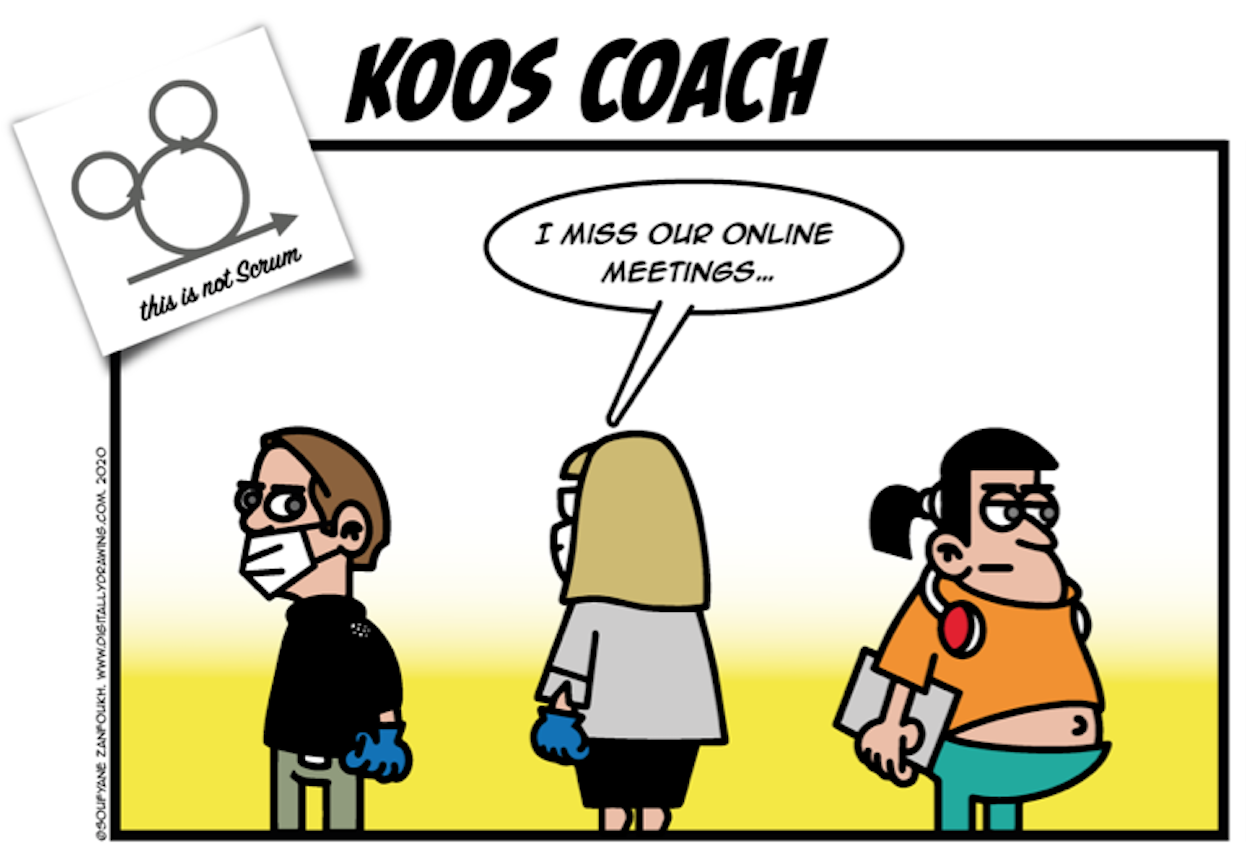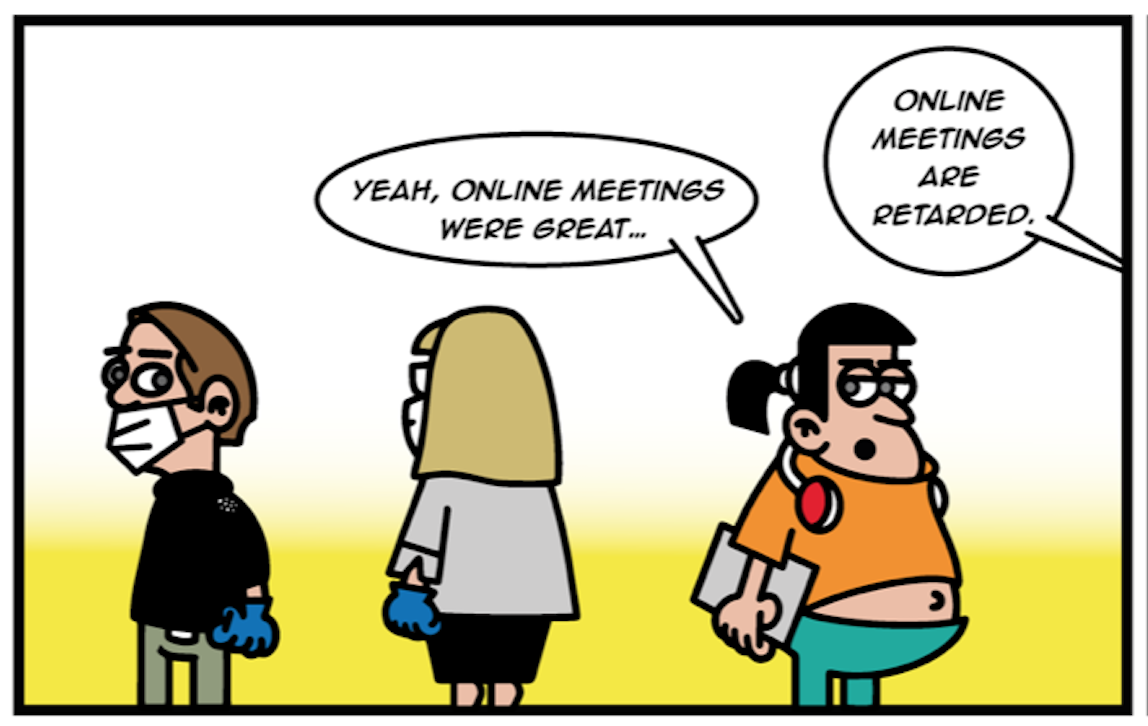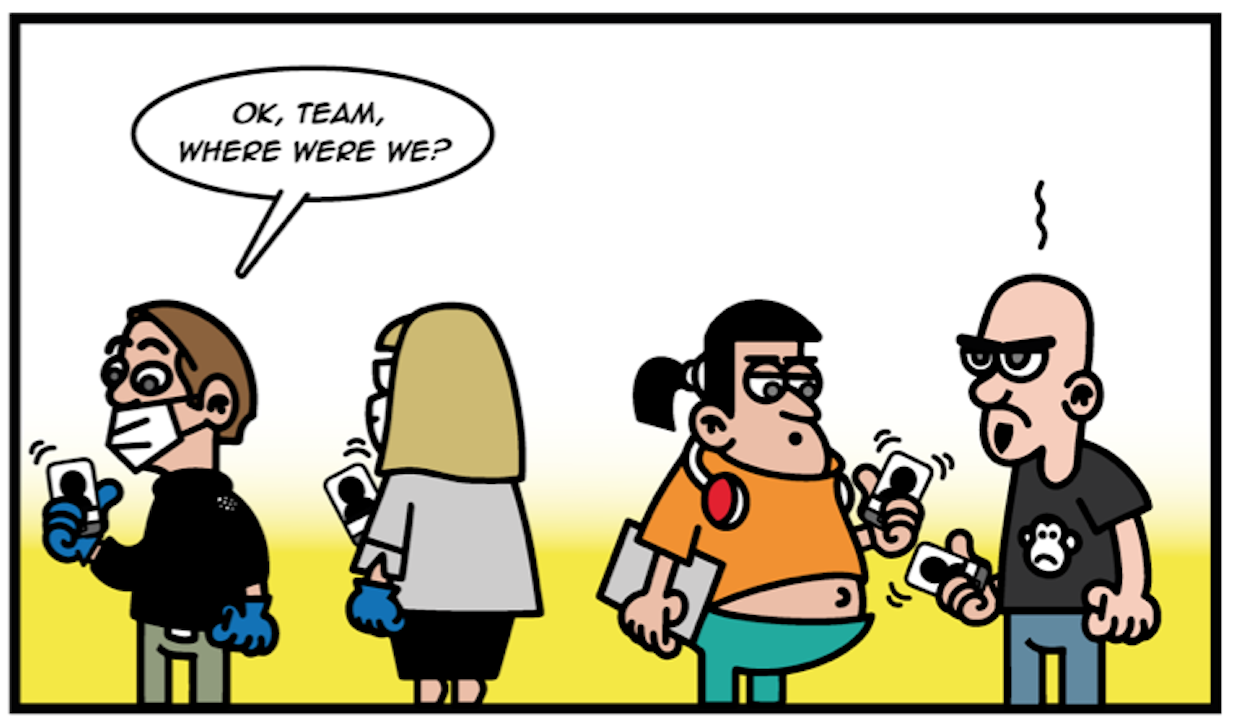
John: “After covid-19, the world will never be the same...”
Peter: “There is no “after covid-19”. Corona is here to stay”
Now that we are starting to see some light at the end of the Covid tunnel, shouldn't we ask ourselves how the corona crisis brings change to our software development efforts? Isn’t this a great opportunity to decide what we want to stop, keep, create, do more or do less of?
To help the software development in your company with creating a future-proof post-covid-collaboration-mix, Co-Learning has developed an online workshop. We will challenge you and your teams to evaluate the covid-learnings and mold a new future with it. We want to explore various angles to look at the challenges you dealt with over the past three months. Don't worry, we will use humour and fun to help you discover your future collaborations and foster the new modes you already adopted.
The corona lockdown is an unprecedented change that humankind shares globally. It made us get together in our family setting. It was like we were thrown back to tribal times. We learned to accept and even appreciate what it’s like to have no office to go to. In short, we think there is a need to think about the consequences of this crisis for the way we develop software.
We should be humble and grateful that we were given so much time to spend with our loved ones. Yet, for some, marriage was tested to the max. In order to survive at home, many of us came to realize that it makes sense to create some kind of rhythm and a set of agreements to make things endurable. If you are a Scrum Master like me, this must have reminded you of starting up a scrum-team, although that was easier.
Global infrastructures permitted companies to switch to working from home very fast. The choice was made easy: you either cater for remote work or you shut down your company. (I think it is quite good to have some pressure that creates decisiveness).
Grounded at home with work on our plate, many of us switched to survival mode. The companies I work with do Scrum and we noticed this made it pretty easy to switch to remote than companies without such a framework. This is because all ceremonies are very explicit and scheduled and also because the roles are clearly defined. There was no need to argue who was going to take care of virtualizing our way of working: Clap for Scrum Masters!
Developers share a belief that communication is disruptive to their thinking processes: Avoid meetings, wear headphones, focus on coding. They initially welcomed working from home. The majority of interactions they have with their colleagues are pull requests and slack messages. However, after a while I started hearing many developers complain and become frustrated from working in isolation.

Once we manage to finish a couple of sprints, the impact of the lock-down is starting to emerge. We are being bombarded with initiatives to make up for the loss of human interaction with our colleagues. In fact, we are overloaded with them. And the problem is that in many cases these virtual coffees, virtual bingo’s, virtual beers, and so on are not really working very well. This is because available tooling does not allow for human interaction to flow as it does in a live environment. In real life we can see everybody, we can choose to focus and tune in on whatever we hear, we can crack a joke across the room, throw something, offer a drink to someone else, step away and isolate ourselves,….
We should need no more than 5 events to produce working software. Let’s add maybe 2 additional meetings that are not covered by Scrum to support scaling, but that should be about it. Coordination and decision making should be for the teams to self-organise. Unfortunately that is not what happens in most companies. Working from home drags us from one meeting to another. Back to back. All day long. It’s surprising how many things we need to have meetings about. We need to think about the reasons that cause this and fix it so we can breathe again and get back to our (development) work.
In the working from-home-era, managers especially have a hard time. They need to find ways to stay in tune with what is happening in the “hidden world of working from home”. Managers need to rely more than ever on tools and system data and they need to schedule many one on ones to create an understanding of how things are going. I talked to managers who informed me they were pretty much done after lunch: Corona made them 50% more efficient. At the same time, it made them feel captains with an invisible crew.
The meeting overload also reduces the time we take to reflect. Normally, we would have an informal chat walking from one meeting to another or when we go for a coffee, not leaving the office context. That time is no longer there.
As a result of the challenges caused by Corona, it is tempting for companies to focus on outputs which makes teams become more task oriented and less creative. The opportunistic product discovery process that Scrum is aiming to facilitate is under stress. Numbers don’t lie. Leaders see the short term effect of increasing output. This makes them embrace working from home as a blessing that generates a productivity increase. However, in the long run, the ability to solve problems instead of finishing tasks will make the difference between the survival or success of a company. Numbers are very useful but we need to be cautious which numbers we look at.
Even when a vaccine becomes available, there will be a higher degree of working from home. We have learned to appreciate collaboration tools, we all see the benefits of not traveling for a one hour meeting. In summary: We experienced we don’t need the office as much as we thought we did. I have even heard of companies who decided to fully switch to working from home and stopped renting office spaces to cut down costs.

We need to sharpen our minds and have a sensible discussion with leaders and colleagues about the shape of our future. Invite us to facilitate our online workshop to challenge you and your teams to discover your post-covid way of working.
Co-Learning offers 5 workshops for free, first come first serve. Contact me to book us.
